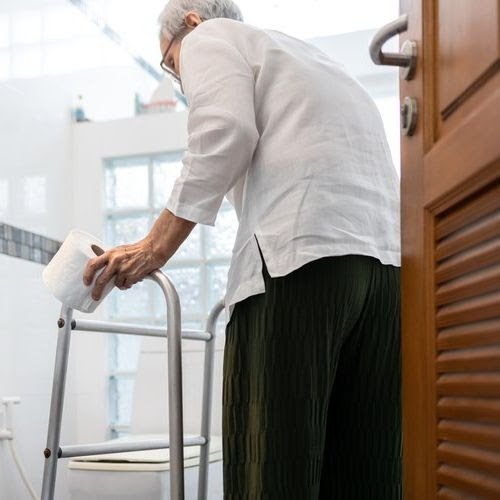There’s No Place Like Home
The routine of daily home activities can bring them a sense of comfort and calm.
Dear Caregivers,
After a few days away from home, one of the things I find myself craving for the most are the personal comforts that come from sleeping, eating, and just plain old hanging out in my home. They don't call it "home, sweet home" for nothing!
For our loved ones suffering from Alzheimer’s disease, the familiarity of home can hold added importance. The routine of daily home activities can bring them a sense of comfort and calm. Here are some tips for helping create a sense of routine:
Be patient: For your loved one, engaging in everyday personal activities can give them the comfort and calm that all of us miss when we’re away. As much as you can, help nurture in your loved one that wonderful feeling of “being home”.
Be aware of, and adapt, to your loved one’s changing abilities. Alzheimer’s is a progressive disease, so keep an eye out for changes in how they approach personal tasks, such as for example using kitchen utensils, and be ready to evolve your processes to compensate.
Maintain consistent routines: Establish a regular schedule for activities such as bathing, eating, sleeping, and going to the toilet, as this can help your loved one feel more secure and comfortable.
Emphasize safety and minimize distractions: Check that your loved one’s bathing water and food are not too hot or cold, that the environment is free of slippery surfaces and has hand-holds, and that there is bright lighting, Turn off the TV and other potential sources of distractions in sleeping areas and other places where calm is important. If necessary, label items such as the toilet, to help your loved one easily identify important items in their environment.
Respect your loved one’s privacy and dignity: It’s a delicate balance, but try as best you can to offer your loved one assistance when needed, and take steps to ensure their safety, while enabling them to maintain as much independence and, when necessary, privacy, as possible.
Communicate in a gentle, positive manner: Speak calmly, coach them when necessary with step-by-step instructions, and stay positive, with supportive reinforcement and a gentle touch to guide them. If an accident happens, reassure them that everything is fine, and clean up without making them feel embarrassed.
Offer choices: When it’s time for a meal, offer your loved one several choices for what to eat; enable them to choose which towel to use when bathing, and whenever possible help them maintain a sense of control and independence.
Here are some more tips on helping your loved one with personal care:
Overcoming Difficulties in Bathing or Showering:
No personal care activity is more challenging than helping your loved one bathe or shower. Because bathing is such a uniquely private activity, your loved one may not want your help. But for most of our loved ones with Alzheimer’s disease, the time will come when they need some assistance. To ensure success with this important activity, tailor your support to match your loved one’s ability. Here’s how.
Dealing with Sleep Disturbances in Alzheimer’s Disease:
People with Alzheimer’s disease often have problems with sleeping or may experience changes in their sleep schedule. Scientists do not completely understand why these sleep disturbances occur, but as with changes in memory and behavior, the impact of disease on the brain can result in changes in sleep. Here are some tips for getting your loved one a better night’s rest.
Managing Incontinence:
Many caregivers say that coping with incontinence is one of the most challenging parts of their duties. But with patience, compassion, and the latest tools, you can manage this challenge while preserving your loved one’s privacy and dignity. Here is some advice.
Remember, if you can’t find the information you need on our website, you can always “Ask NAN” by clicking on this link.
Best,
Rosemary D Laird, MD, MHSA
Founder and Chief Medical Officer
“The ache for home lives in all of us.”
— Maya Angelou




